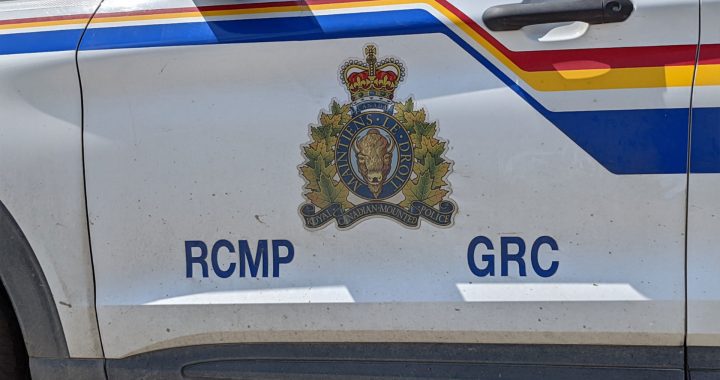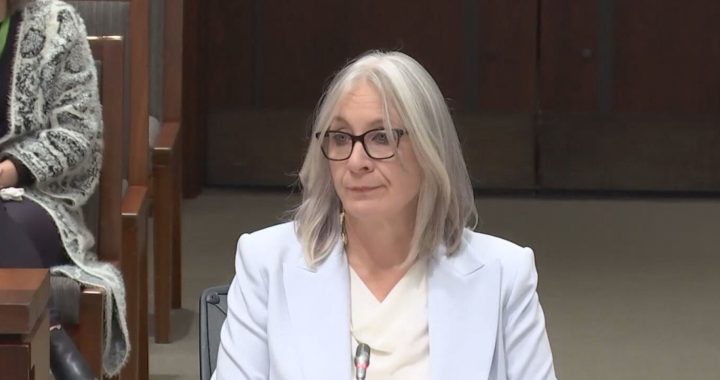The chief of Tr’ondëk Hwëch’in First Nation in the Yukon says the territorial government is “not working in good faith” by allowing a limited licensed summer hunt of the Fortymile caribou herd.
“There’s a lack of respect there,” Roberta Joseph told APTN News. She wants the government to hold off on the hunt until a herd management plan is in place.
“The government needs to step back and understand that…we (need to) work together for management of resources for fish and wildlife within a traditional territory.”
The herd, which partly roams on Tr’ondëk Hwëch’in territory, faced near extinction in the 1970s due to overhunting, cold winters and wolves. Tr’ondëk Hwëch’in imposed a voluntary no-harvest for several decades, and hunting to outsiders has been off limits for over 20 years.
In 1995, the herd was estimated to be 24,000 animals. While numbers fluctuate year to year, it’s now thought to be about 84,000.
The territorial government said the First Nation have subsistence harvest rights and have been able to harvest a small number of caribou since 2017, though few have been harvested. Joseph said a small subsistence hunt was permitted this year to allow the citizens to reconnect with the caribou.
The First Nation is still waiting on a herd management plan, which is a collaborative effort between the First Nation and the territorial government. It’s been in development since 2013.
On Aug. 1, the territorial government opened up the herd, despite there being no firm herd management plan in place. Up to 160 permits can be issued until Sept. 9.
In January, the government also permitted a limited licensed winter hunt, totaling 225 permits. 66 permits were issued, and 14 caribou were harvested.
While Joseph said the Tr’ondëk Hwëch’in are not against opening the herd to outside hunters when a herd management plan is in place, permitting a hunt without the agreement of the Tr’ondëk Hwëch’in is in violation of their treaty agreement with the territorial government.
“We need to develop a program that would include all of these guidelines and objectives to teach our youth as well as our adults how to harvest the Fortymile caribou. We haven’t done it in so long that we have to regain all that (knowledge) for ourselves,” she said.
Mike Suitor, a migratory caribou biologist for Environment Yukon, said the hunt went ahead in order to continue the health of the herd.
“I think for a lot of people it’s a hard one to wrap your head around. You’re harvesting them, you’re killing them, how could you be helping them?” he said.
“When these herds get large, what tends to happen is they over-graze and trample their habitat and start to damage it. That damage can have large long-term repercussions for the herd. “When they start to get larger in population size, they deteriorate, and then what happens is they quickly decline.”
While Suitor says he can understand Tr’ondëk Hwëch’in’s frustration, the permits don’t violate treaty agreements.
“We’ve structured a very structured hunt that doesn’t impact the Tr’ondëk Hwëch’in harvesters,” he said.
Suitor says the territorial government is close to finishing the herd management plan, but can’t say when it will be finalized.
But without a herd management plan, Joseph said it’s only a matter of time until history repeats itself.
“I don’t agree with that kind of information without it being completed,” she said.
“We’ve never seen populations of caribou or others decline when there’s a no-harvesting recovery program in place.”
Joseph said also at stake is the Tr’ondëk Hwëch’in’s traditional connection to the caribou, which has been weakened throughout the generations.
“It’s a way where our youth have bonds with family members and elders,” she said.
“It’s important for us to ensure that we continue to maintain a high respect for our land, traditional foods that we harvest and pass that down.”
Correction: This article was updated to more accurately reflect herd numbers. There is no definitive figure for the population peak of Fortymile caribou, though it is thought to have numbered in the hundreds of thousands.









